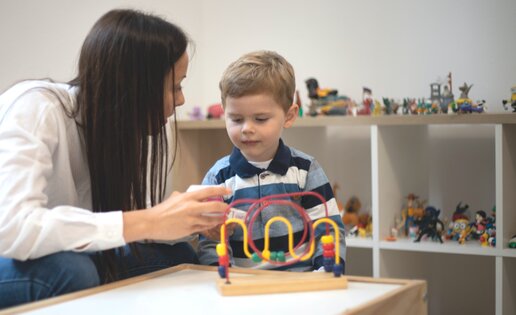
Neurodiversity
- Dr Blánaid Gavin, Assciate Professor, Child and Adolescent Psychiatry (C&AP), UCD School of Medicine and Consultant in C&AP
- Dr Timmy Frawley - Head of Subject – Mental Health Nursing and Associate Dean for GT Studies, UCD School of Nursing, Midwifery and Health Systems
- Dr Cliodhna O'Connor - Assistant Professor, UCD School of Psychology and Social Psychologist
- Beth Kilkenny, Administrative Officer, UCD CHAS (College of Health and Agricutural Sciences)
What is Neurodiversity?
Neurodiversity is a term coined in the 1990s by Australian sociologist Judy Singer. This concept describes variation in human brain functions relating to sociability, learning, attention and mood. Neurodiversity encompasses characteristics traditionally labelled with terms such as Autistic Spectrum Disorder (ASD) and Attention Deficit Hyperactivity Disorder (ADHD). The term ‘Neurodiversity’ is designed to positively reflect the ‘neurological diversity’ of the human brain rather than pathologisedifference.
One of the many strengths of the Neurodiversity paradigm is the central aim of highlighting societal barriers. It is hoped that increased understanding and awareness across all sections of society will lead to recognition of the need to remove the barriers and ‘disenablers’, to facilitate full societal participation and to harness the strengths and unique potential of neurodiversity.
Why is it important?
In order to facilitate a successful university experience, it is critical that the university provides adequate recognition, supports and equality of opportunity. In so doing, UCD can act as a societal leader in promoting awareness of Neurodiversity and celebrating the myriad ways Neurodiversity enriches our global UCD community.
What are the unique features of this project?
This project is based on the Stanford Neurodiversity Project. The framework of this initiative is unique in its design. It incorporates a multifaceted approach to achieving its objectives by involving students/staff, the broader student population and academic faculty, advocates, clinicians, companies /employers and the local community.
In keeping with the ethos of the strengths-based model of neurodiversity, this framework is designed to enable individuals to achieve their full potential both academically and in employment both within the university and beyond, mutually benefitting the student, the university and wider society. This model informs the approach of directly linking with the business community to support their neurodiverse employees and, in turn, to provide a funding stream for the initiative.
Neurodiversity research is critical and is built into the development and roll-out of the project.
What are the components of the UCD Neurodiversity Project?
- Increasing awareness of Neurodiversity across the UCD community.
- Providing public education and community engagement on neurodiversity.
- Developing a mentoring programme for employers.
- Developing resources for educators.
- Developing modules on neurodiversity.
Why UCD?
The core principles of this project mirror the vision and strategic objectives of the university. Pioneering this project will accentuate UCD’s commitment to equality with a cutting edge approach channelling the potential of neurodiversity for the twenty-first century.
https://www.ucd.ie/chas/about/committees/neurodiversity/
Course Features
- A programme for professionals with a special interest in neurodiversity.
- A professional certificate which can build towards a professional diploma.
- Designed for those who work in any setting such as clinical practice, education or the workplace.
- Delivered by experienced practitioners and University faculty.
- Supports ongoing professional development.
Course Overview
This programme aims to equip participants with enhanced competence and understanding of neurodiversity. The complex way in which interactions either impede or positively influence individuals’ strengths and societal participation is examined. The programme seeks to enhance understanding of neurodevelopment as reflecting ‘neurological diversity’ and highlight multi-layered approaches to optimise outcomes across society. To achieve this, the programme, across two distinct yet interlinked modules, explores contemporary neurobiological, psychological, educational and occupational viewpoints. This enables participants to gain a more nuanced perspective of neurodiversity informed by current theoretical frameworks and evolving scientific knowledge.Participants may pursue one module – PSYC40340 Understanding Neurodiversity - (10 ECTS) to gain a professional certificate or two modules (20 ECTS) PSYC40340 plus PSYC40330 Neurodiversity in Society to achieve a professional diploma.
Programme Options
You can find a full list of our courses here.
| Code |
Description |
| PSYC40340 |
Understanding Neurodiversity – Professional Certificate option |
| PSYC40330 |
Neurodiversity in Society - Professional Diploma when combined with PSYC40340 |
Neurodiversity - Masterclass Series
Contact Us
Please submit your query using our Graduate Study Enquiry Form and the School Marketing & Communication team will reply to you with general advice via email. More detailed queries will be passed on to the relevant programme director/administrator who will respond to you directly.
